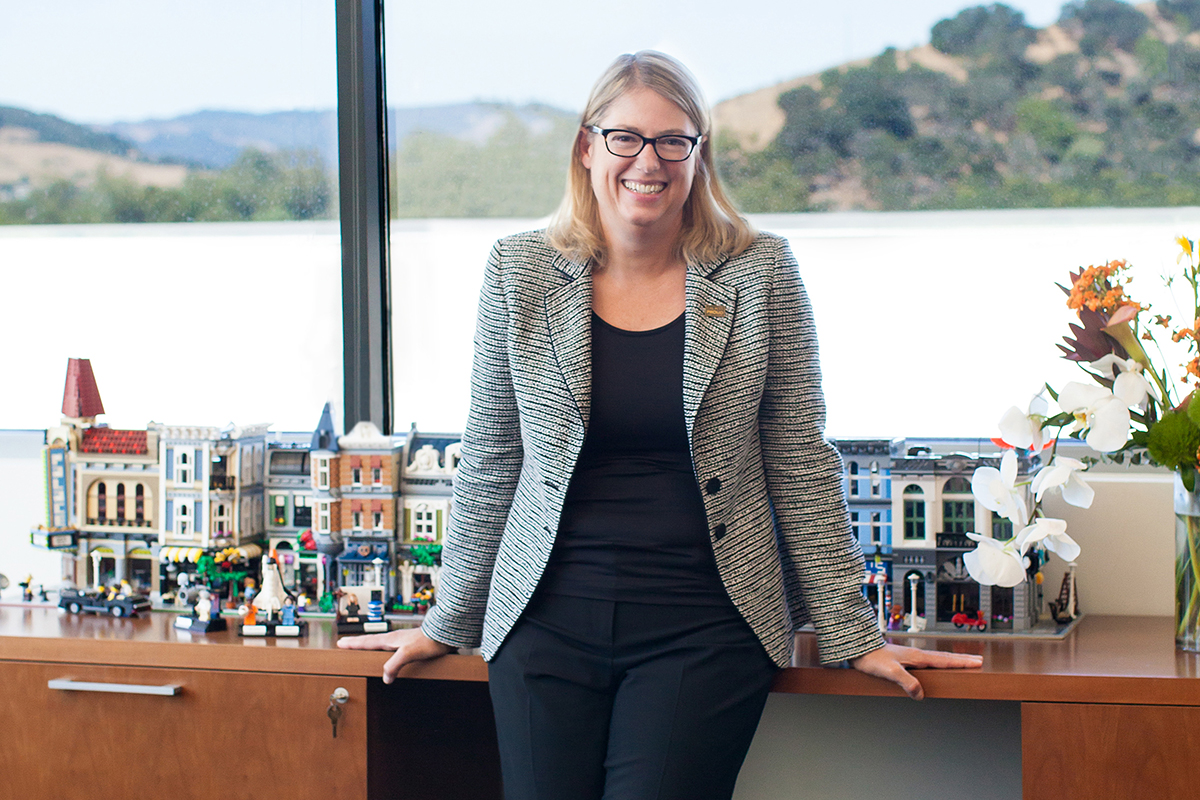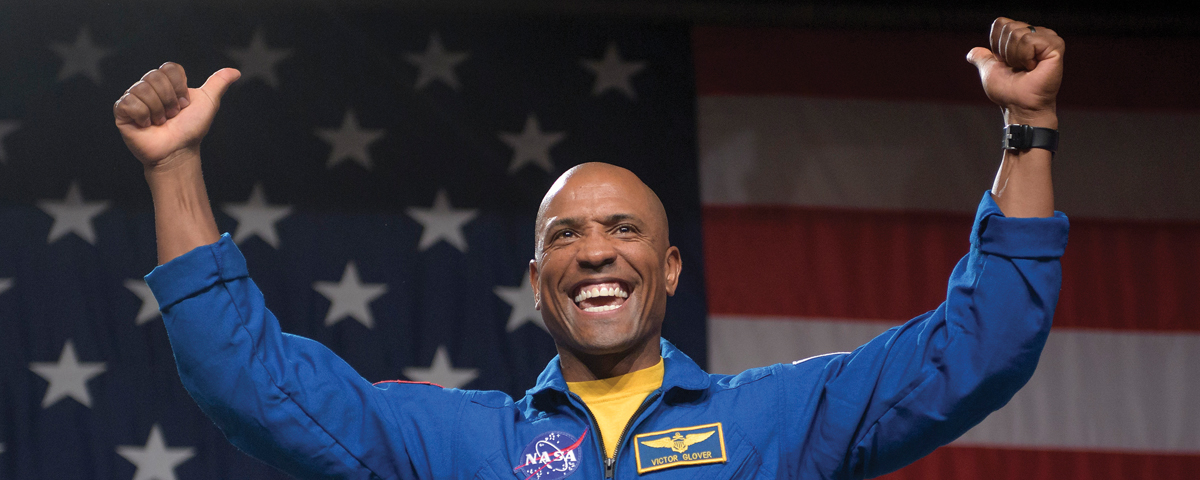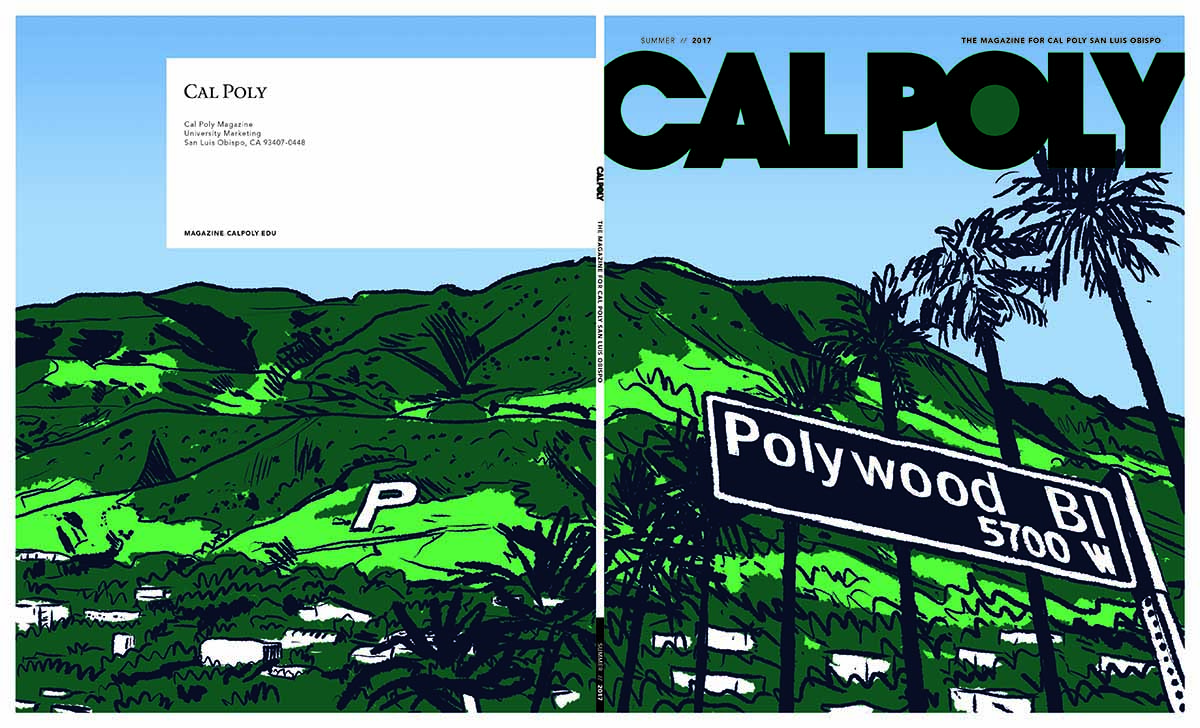Cal Poly Magazine: What was the first time you knew you wanted to be an engineer?
Fleischer: I have always been a builder. My favorite toys have always been blocks, Legos, erector Sets and Tinker Toys. What I remember as kind of a turning point was watching Sally Ride become an astronaut and blast off into space. I remember telling my family “I don’t want to be Sally Ride, but I want to build her spaceship.” I had Legos that looked like a moon base, and I would build with them saying, “This is what I’m going to do – I’m going to build spaceships.” I was really lucky to have my mom, who was patient with me while I figured this out. We had to look up who the contractors were on the Space Shuttle and found their HR departments. I typed letters to all of them saying, “I want to work for you to build the Space Shuttle. What do I need to study in college if I want to do that?” God bless them, because a bunch of them actually wrote back. They said, “You need to study mechanical engineering.” So, I did. I didn’t end up building spaceships, but I did end up working in electronics with heat transfer in different areas. It opened the door and I found other things I liked in engineering.
Why did you choose Cal Poly for this step in your career?
I was looking for an opportunity to be a leader, and I thought that Cal Poly’s values and the emphasis really aligned with my core beliefs. The excellence here in education is just unparalleled. Not only that, I’ve always been a huge believer in hands-on education. The Cal Poly Learn by Doing philosophy was such a driving force for me wanting to come here. I don’t think you ever truly understand something until you work with it in a personal way.
“I remember telling my family, ‘I don’t want to be Sally Ride, but I want to build her spaceship.'”
What’s the biggest innovation or disruption on the horizon in engineering?
I think what we need to get used to is continuous disruption. Our world is changing so quickly that we’re not going to know where the next greatest disruption is going to be. That’s why it’s really important in engineering education to emphasize lifelong learning and being nimble and agile in how you approach your career. That’s what we’re teaching here, giving people a wide range of experiences they’re able to draw from, because you’re just going to have to be able to respond as the world changes around you. Thinking about engineering in a broad sense as well, we definitely need the hard, technical skills, but we also need engineers who are aware of the social and moral responsibilities.
Why is inclusion important in engineering?
I think we have to very deliberately cultivate the right atmosphere to show the inclusivity we have as a community. If you don’t see other people who look like you doing it, sometimes you don’t think that could be you. Based on my own experience, I have very strong belief that we need to be providing role models for young women and for children of color. We have to show that to the outside world, and that makes people want to come here and be a part of it. I very carefully cultivated and intentionally set a certain environment in my office in the college [at Villanova], and I will continue to do that here. I strongly believe that the more different voices that we get at the table the better off our output and our designs will be. The decisions we’re making impact so many people, so we have to think broadly about how our choices are going to impact those who are going to use our designs and products. That’s why a wide range of people on the team will end up with a better solution.
Where do you see the college going from here?
I’m so excited about the future here and how we can continue to evolve our imprint on engineering education. Cal Poly is and will continue to be a leader in organizations like the American Society of Engineering Education and other top engineering education conferences and journals. Our goal should be that when people think about the state-of-the-art in engineering education, Cal Poly is the first thing that they think of.





